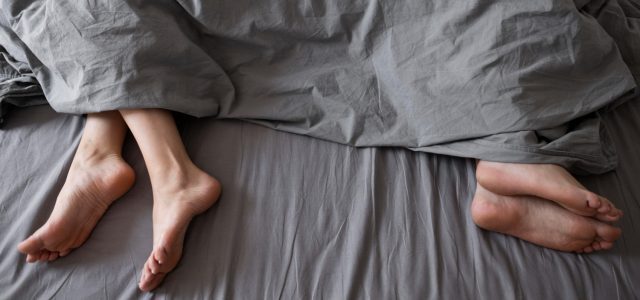When it comes to understanding your body and how it works, understanding your hormones is very important. Hormones are the chemical messengers of your body. They tell each organ, system, and structure what to do, how to do it, and when to do it. That’s a big job, and if one of your hormone levels is out of balance, it could cause things not to work right all over your body.
Understanding your hormones, however, is a little easier said than done. There’s a lot of them, and they have complex and varied jobs that are hard to keep track of. To help you get a better handle on your hormones, the team at Renewed Vitality is breaking down what you need to know about these major body chemicals. Today, let’s take a look at testosterone!
What is Testosterone?
Testosterone is a sex hormone, meaning that its primary functions are related to the reproductive system. It’s largely known as the male sex hormone since it performs lots of very important functions in a man’s body, but just like estrogen, everybody has some level of testosterone in their body, regardless of sex or gender.
What Does Testosterone Do?
As a male sex hormone, testosterone is vital to a man’s sexual development and function. Testosterone levels in the body start to rise around puberty, and contribute to increasing height and muscle development, the development of the penis, testes, and prostate, and body hair growth.
In maturity, testosterone plays an important role in sperm production and libido. Aside from this, it also affects your blood health, signaling the body to make new red blood cells, and is important to the health of your bones and muscles. Testosterone levels can even affect your mood and how your body stores fat!
Where is Testosterone Made?
Testosterone, like the other sex hormones, is produced mainly in the “gonads,” or the primary reproductive gland of the body. For men, testosterone production takes place in the testes. For women, the ovaries make the levels of testosterone they need.
What Happens If You Have Low Testosterone?
Low testosterone is a common complaint among men in their later years. While the symptoms of falling testosterone levels as you age are difficult to deal with, they’re not uncommon or unnatural. Testosterone levels naturally start to drop off as you age, but especially low levels can lead to symptoms like decreased sex drive or erectile dysfunction, low energy, low mood, memory problems, weight gain, thinning hair, and thinner or weaker bones. These effects of low testosterone can happen in women with an imbalance in the hormone as well as men, although they are much more common in males. The condition is often abbreviated to “low T,” but you might also see it referred to as “male hypogonadism.”
What Happens If You Have High Testosterone?
Unhealthily high testosterone levels can lead to acne, weight gain, high blood pressure, increased risk of heart attack or blood clots, low sperm count, and mood swings, among a number of other side effects. High testosterone in men is often seen as a result of steroid use, but it can also be a sign of tumors or genetic mutations.
In women, high testosterone levels can lead to increased hair growth, weight gain, reduced fertility, and other symptoms. It’s most commonly a sign of PCOS, or polycystic ovarian syndrome, a fairly common reproductive condition.
What to Do About Testosterone Imbalances?
If you suspect you may be suffering from an imbalance in your testosterone levels, HRT, or hormone replacement therapy, might be a good option for you! At Renewed Vitality, we offer highly advanced bioidentical hormone replacement therapy that can help you feel more like yourself again! Contact us today to learn more about how we can help you.





